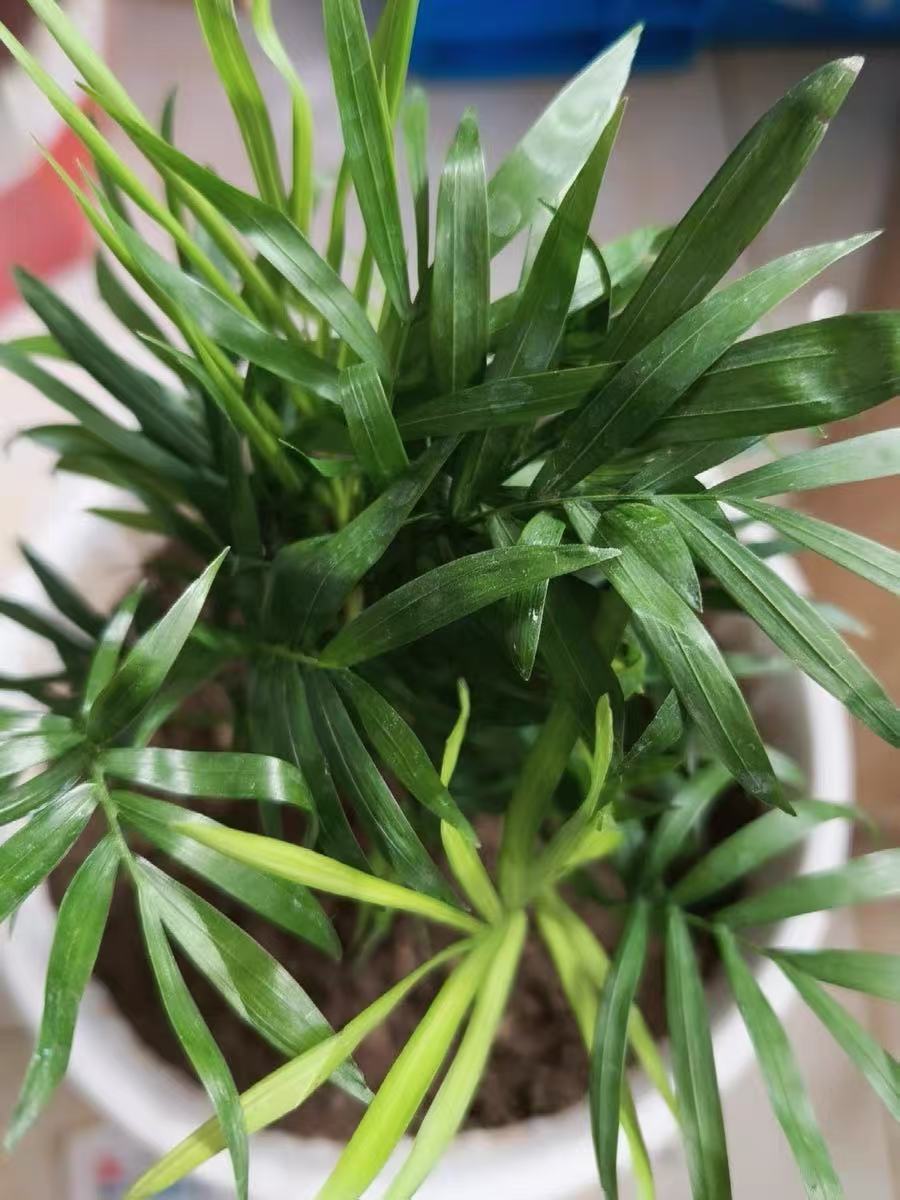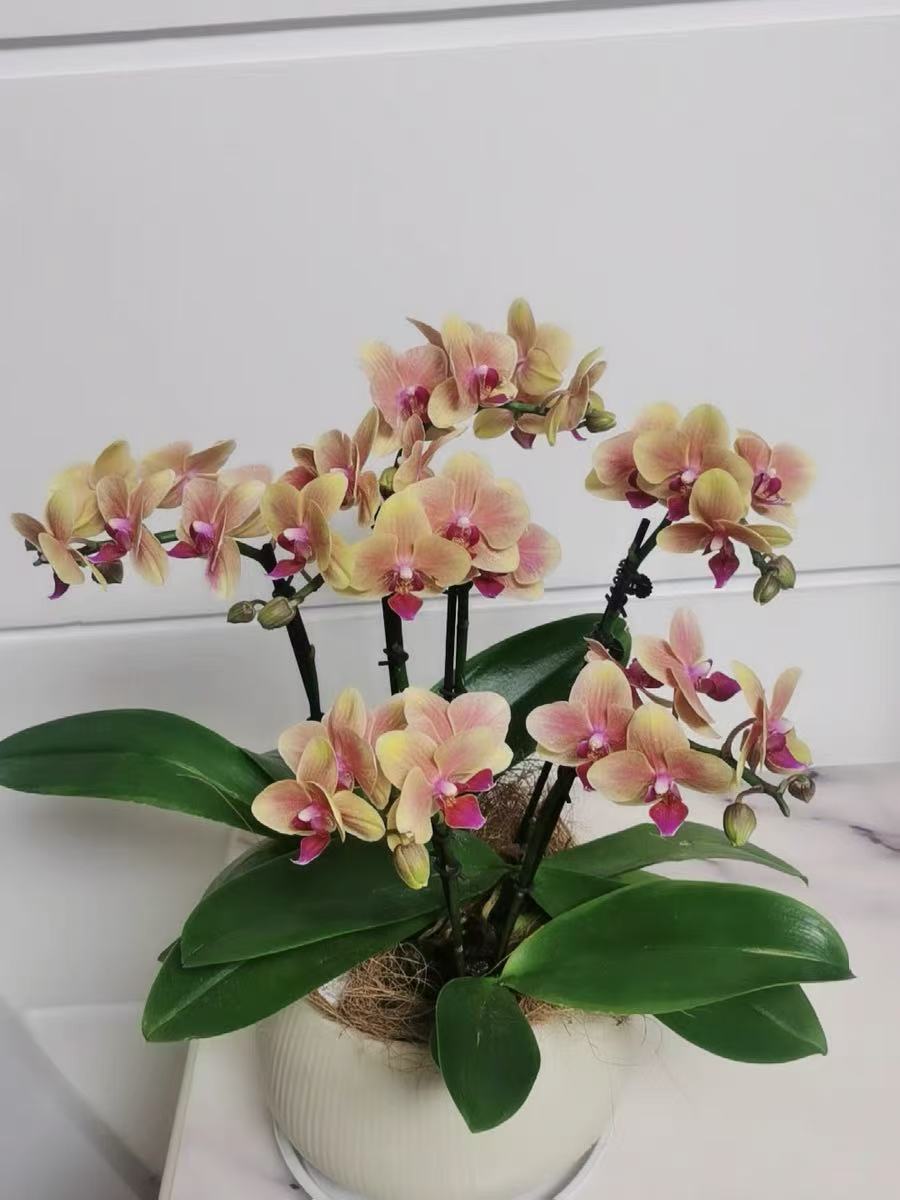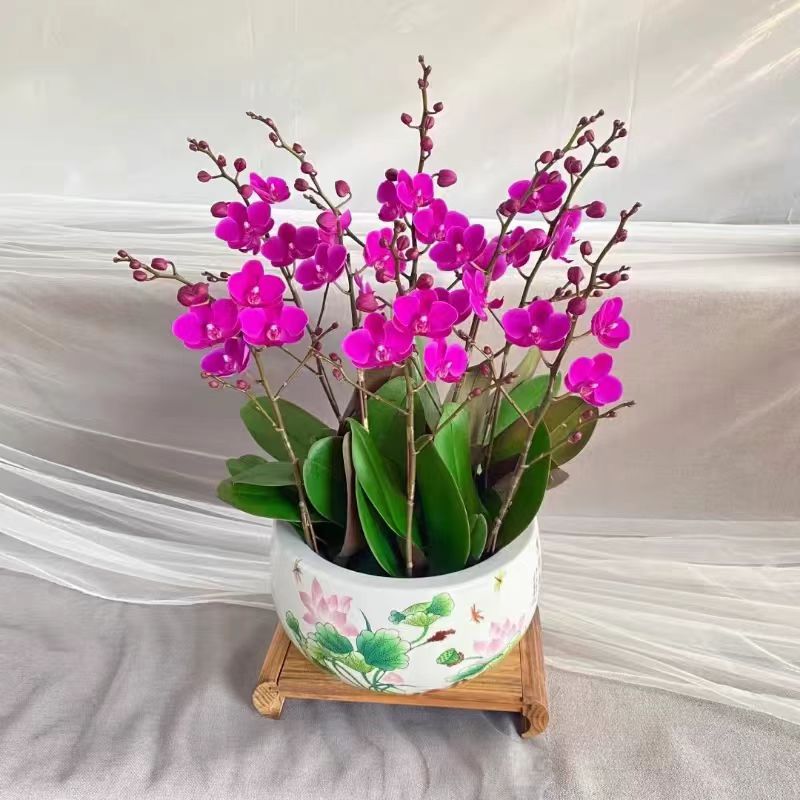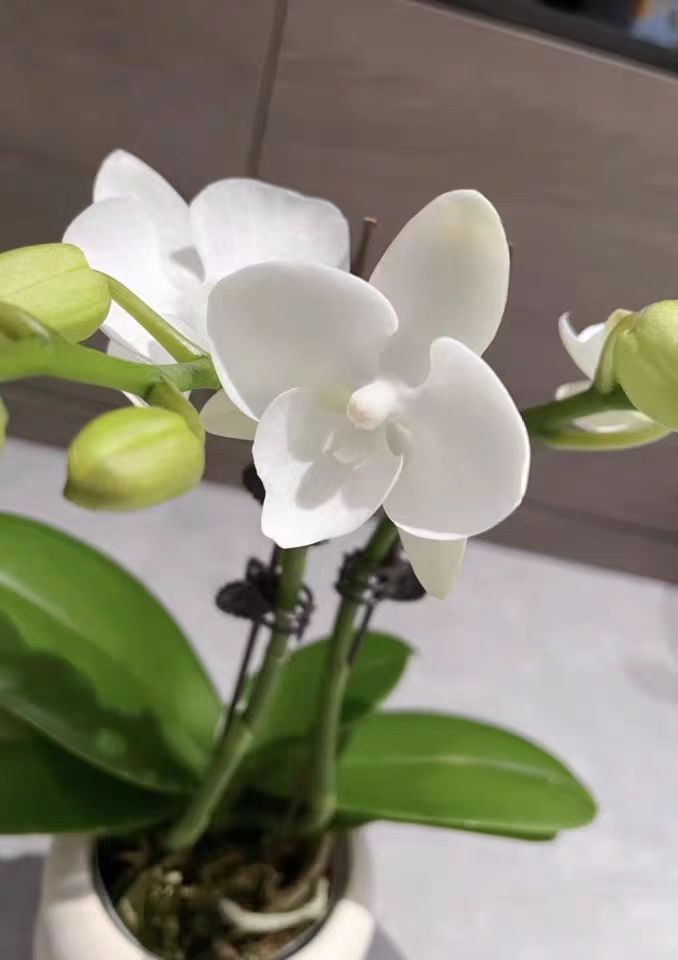Miniature Coconut, as a popular indoor potted plant, is often used to decorate the home environment. Many friends will care about whether it is toxic when choosing indoor green plants, especially for families with children or pets, this is particularly important. Fortunately, Miniature Coconut is non-toxic and will not cause any harm to humans or pets. You can safely maintain Miniature Coconut indoors and enjoy the fresh air and beautiful visual experience it brings.
Cultivation methods of Miniature Coconut:
Soil: Miniature Coconut prefers loose, fertile, and slightly acidic soil with good drainage. When preparing the soil at home, you can mix leaf mold, garden soil, and river sand in a ratio of 4:3:3, and add a small amount of decomposed organic fertilizer as the base fertilizer. This soil formula can not only ensure the nutrient requirements of the plant but also prevent root rot caused by waterlogging.
Temperature: Miniature Coconut is suitable for growing in a warm environment, and the suitable growth temperature is 20-30°C. In winter, special attention should be paid to keeping warm, and the room temperature should not be lower than 10°C to avoid freezing damage. At the same time, avoid placing the plant near the heating or air conditioning outlet to prevent the leaves from drying and dehydrating.
Light: Miniature Coconut likes a semi-shaded environment and is afraid of direct sunlight. When breeding indoors, it can be placed in a bright place without direct sunlight, such as the diffused light near the window. In summer, it is necessary to shade appropriately to avoid the leaves from being sunburned; in winter, the light can be appropriately increased to promote the growth of the plant.
Watering: Miniature Coconut likes a humid environment but is afraid of waterlogging. During the growth period, the soil in the pot should be kept slightly wet, following the principle of "watering when the soil is dry, and watering thoroughly when watering". Spring and autumn are the peak growth seasons, and watering can be done every 2-3 days; in summer when the temperature is high, the water evaporates quickly, so the frequency of watering needs to be increased, and the leaves should be sprayed with water frequently to increase the air humidity; in winter, the watering should be reduced and the soil in the pot should be kept slightly dry to prevent freezing damage.
Fertilization: During the growth period, 1-2 times of thin decomposed liquid fertilizer or compound fertilizer can be applied every month to supplement the nutrients required for the growth of the plant. Note that fertilization should avoid high and low temperature periods to prevent the fertilizer from burning the roots. As the temperature drops in autumn, the frequency of fertilization should be gradually reduced until it stops, so as to help the plant survive the winter safely.
Precautions for cultivating Miniature Coconut:
Pot changing and pruning: Miniature Coconut is usually placed at home as a potted plant and has relatively high requirements for soil. It is recommended to change the soil in the pot once a year to maintain a good growth environment. When pruning, mainly remove the old, weak, diseased, and disabled branches and leaves and the over-dense branches to increase the ventilation and light transmission inside the plant. At the same time, shaping pruning can be carried out according to personal preferences.
Pest and disease prevention and control: Miniature Coconut rarely has serious pests and diseases, but preventive work still needs to be done well. The possible diseases are "yellow leaf disease" and "black spot disease", which are mostly caused by too strong light or too much watering. It is necessary to diagnose and take corresponding treatment measures in time. In terms of pests, the main problem is "scale insects", and drugs such as trichlorfon and omethoate can be used for prevention and control.
Humidity management: Maintaining air humidity is crucial for the growth of Miniature Coconut. When breeding indoors, a humidifier can be used or water can be sprayed regularly around the plant to simulate its original tropical rainforest environment.
Miniature Coconut, as a non-toxic and easy-to-maintain indoor potted plant, can not only beautify the home environment but also purify the air and absorb harmful gases. As long as you master the correct cultivation methods and precautions, you can make Miniature Coconut thrive at home and bring you fresh air and a pleasant mood.
What are the cultivation methods and precautions for Miniature Coconut?

Share with
Tagged in :




Leave a Reply